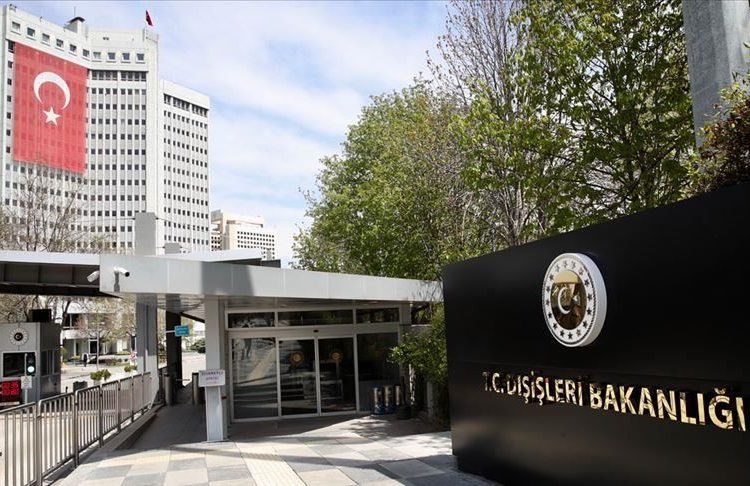Nordic Monitor
Turkish police investigated the leak of confidential diplomatic correspondence and reports to Iran, a secret Turkish government document included in an investigation file on an organized crime gang operating in a number of cities in Turkey has revealed.
According to the document, obtained by Nordic Monitor, Turkish police who were investigating the gang, the members of which were accused of blackmail and illegally obtaining confidential government and military documents, found that diplomatic correspondence had been leaked to Iran.
The document, dated April 24, 2015 and signed by police investigators Yavuz Selim Akkoc and Turan Ergun, highlights the fact that Iran had accessed Turkey’s diplomatic archive through the organized crime network.
The network reportedly used honey traps with the help of escort women, including some foreign nationals, offered cash or employed methods used in espionage to obtain classified information from high-ranking officers and senior bureaucrats. The group then either sold or planned to sell these sensitive documents.

Akkoc and Ergun urged the interior ministry to ask the Turkish foreign ministry whether the diplomatic correspondence was still considered classified in line with Article 334 of the Turkish Penal Code. According to the document, the diplomatic message, dated January 19, 1996 and numbered 146-172, was leaked to Iran by the espionage network.
Article 334 states that “Any person who publicizes information, the disclosure of which is restricted pursuant to the laws and regulations of the legislative authorities due to confidentiality, with the purpose of spying on political or military affairs, is subject to imprisonment of between 10 and 15 years.”
The document signed by police investigators Yavuz Selim Akkoc and Turan Ergun:
In response, Suat Akgün, then-deputy director general of the Turkish foreign ministry’s South Asia desk, informed police investigators that the aforementioned diplomatic message should be considered confidential. Today, Akgün serves as Turkish ambassador to Brunei.
Foreign ministry document dated June 8, 2015 and signed by Akgün:
The classified foreign ministry document, dated January 19, 1996 and signed by Osman Korutürk, then-deputy director general for Middle East and international organizations, focused on a wrestling tournament to be held in Iran’s city of Mahabad, which is inhabited mostly by Kurds, in accordance with a cooperation protocol between Iran’s West Azerbaijan Province and Turkey’s eastern provinces of Erzurum, Van and Hakkari.
In the diplomatic correspondence the foreign ministry described security challenges in Mahabad and stressed that the participation of Turkish athletes in the event might cause undesirable consequences, with reference to a report received from the Turkish Consulate General in Urmia. The foreign ministry urged the interior ministry not to allow Turkish athletes to attend the wrestling tournament.
Foreign ministry correspondence dated January 19, 1996 and signed by Osman Korutürk:
Nordic Monitor previously published a report revealing how Turkey’s top diplomats had leaked classified information and reports to the organized crime gang.
An investigation by the İzmir Chief Public Prosecutor’s Office launched in 2011 exposed the members of the network and their criminal activities as well as Turkish military, police and intelligence officers with illegal links to the gang. Diplomats who engaged with the group were also indicted by the chief prosecutor. Today, most of the foreign ministry staff described in these lists continue representing Turkey abroad.
According to the group’s secret documents exposed by Nordic Monitor, Turkish diplomats, some of whom currently serve as ambassadors in foreign capitals, provided top-secret diplomatic reports and sensitive information to the criminals, and the sexual encounters of government officials were recorded to ensure a continuation of the leaks. In addition to family secrets, information on their weaknesses, characteristics and professional networks, and comments by other diplomats on their private lives were listed by the gang in order to threaten those people.
Interior ministry correspondence on Iran:












